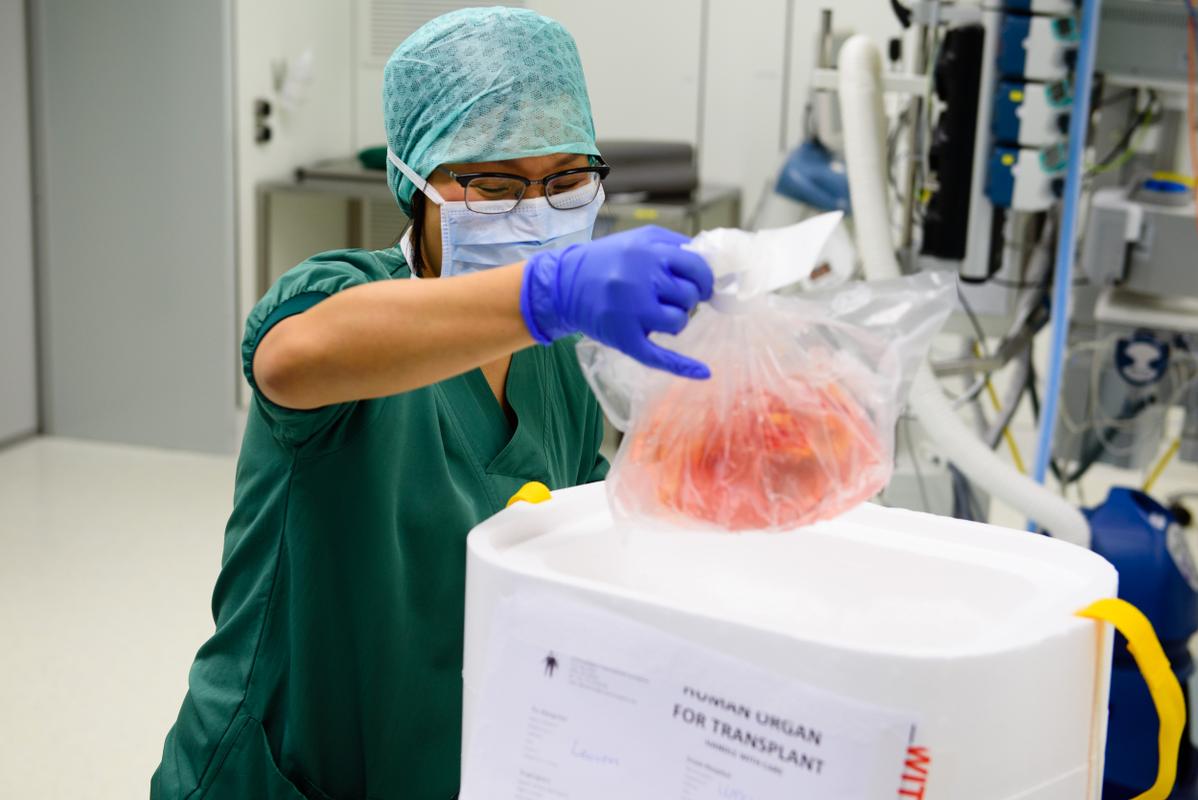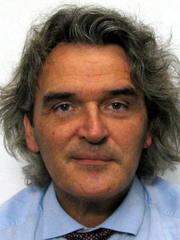UZ Leuven performs approximately 140 kidney transplants a year – which covers a third of all kidney transplants in Belgium. Less than 10 per cent of those transplants is with a living donor kidney. Donor kidneys from a deceased person are allocated via Eurotransplant. Within that international organisation UZ Leuven represents the second largest kidney transplant programme.
The very first kidney transplant at UZ Leuven took place on 4 November 1963. Almost 60 years later, the counter stands at 5,000. The results are very good: five years post-transplant, approximately 90% of patients are still alive. It is likely that a number of historis innovations contribute to this success.
Regional collaboration
Prof. dr. Dirk Kuypers, head of the nephrology department at UZ Leuven: “In the eighties, the Leuvense Samenwerkende Groep voor Niertransplantatie (LSGN) was established. WIthin this network of 30 Flemish and Brussels hospitals a decentral and mutual clinical follow-up policy was set up, which was quite visionary at the time. Since then patients get a post kidney transplant follow-up at UZ Leuven for another three monts and after that by their local attending neprologist. They're only expected for an annual check-up in Leuven.”
First shared electronic patient record
To improve operations within the LSGN, shared electronic patient record has been in use since 1991. “At that time, this was also unprecedented. All LSGN hospitals share their online records in real time, so that important data can be passed on immediately. Early 2010 there was the transfer to a fully structures patient record in the current hospital-wide KWS (Clinical Work Station),” professor Kuypers explains.
Regular follow-up biopsies
A third innovation was taking invasive biopsies of the donor kidney at regular intervals after the transplant, including the patient whose standard measurements from blood and urine samples did not reveal any abnormalities. These so-called ‘surveillance kidney biopsies’ were started at the end of the nineties in only a few transplant centre across the world. Professor Kuypers gained hands-on experience with this method in Australia and since 2004 it has also been applied routinely at UZ Leuven. Today, the majority of patients undergoes such a biopsy 3 months, 1 year and 2 year post kidney transplant. The follow-up is labour-intensive, but has several benefits both clinically and scientifically.
In about 16% of all patients, the donor kidney seems to be working perfectly based on the measurements the blood and urine, but nonetheless we discover via the biopsy that something is not going optimally.Prof. dr. Dirk Kuypers, head of the nephrology department
Prof. dr. Kuypers: “The biopsies allow us to uncover problems which remain undetected via blood or urine samples early on. In about 16% of all patients, the donor kidney seems to be doing perfectly based on the measurements in the blood and urine, but nonetheles we discover via the biopsy that something is not going optimally. For example, we can detect and counter early signs of rejection by modifying the immunosuppressive medication. Thanks to our close follow-up, the average survival time of the donor kidney continues to increase. The last surveillance biopsy is done 2 years post-transplant, because the big majority of patients is stable then and additional biopsies do not have any added clinical value.”
Largest biobank with samples of transplanted kidneys
Even though the surveillance biopsies are part of standard clinical practice, and therefore not taken in view of a trial, they still contribute to ongoing research.
“Every year we take over five hundred biopsies, resulting in the largest biobank worldwide of samples of transplanted kidneys. We always ask the patients' permission to use theur biopsy for further scientific research. E.g. the samples can help in the development of new medication which can personalised for the individual patient, which bring us closer to personalised medicine. We're also doing a lot of research into less invasive biomarkers that can e.g. predict rejection or susceptibility to certain types of infection early on. In future, these types of biomarkers could maybe completely replace the invasive biopsies.”

